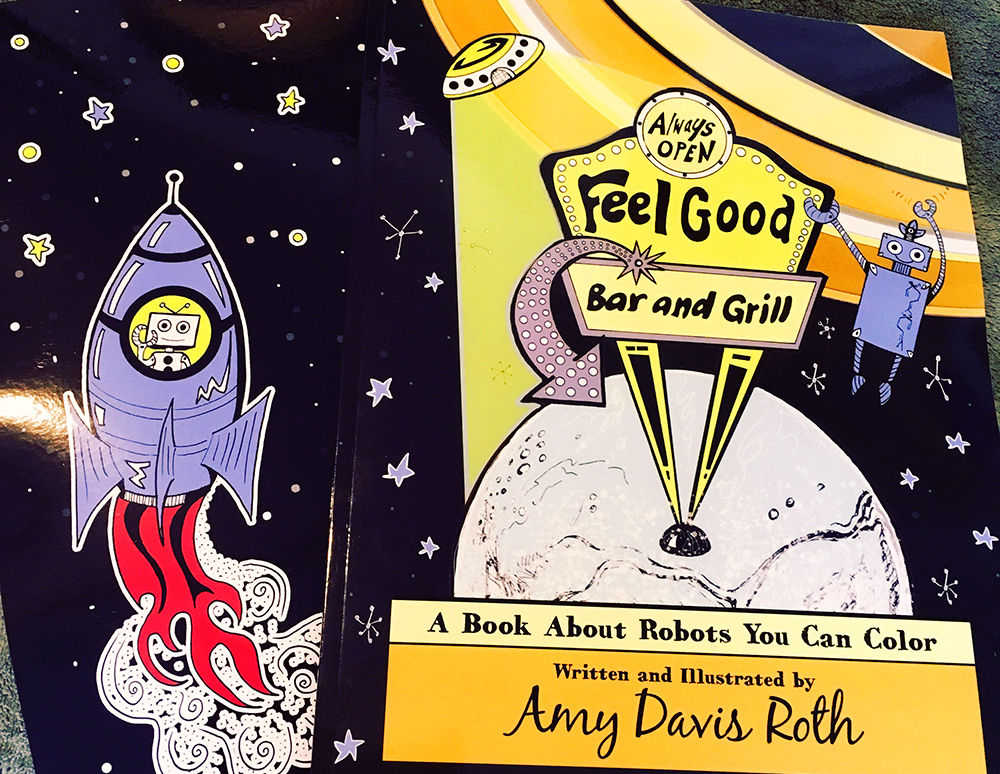Skepchick Book Club: Ha! The Science of When We Laugh and Why

Note: Information about next month’s book and date are at the bottom of this post.
***
Welcome back to the Skepchick Book Club! This month we read Ha!: The Science of When We Laugh and Why by Scott Weems. It was a nice, short read, all about, well, the science of laughter.
The book was interesting, although sometimes a bit dry, but that is to be expected from any book that tries to explain humor. It was divided into three parts: The “what is” and “why” behind laughter, and the “why do we care” section, all of which are summarized below.
The “what is” section explored the concept of laughter and jokes. In one section, the author describes the difference between jokes in different cultures. For example, Americans like jokes with insults or vague threats, whereas Europeans tend to prefer surreal or absurd humor. (The book uses a lot of the research gained from Richard Wiseman’s LaughLab.)
Here’s an example of one of the top jokes submitted by an American:
Texan: “Where are you from?”
Harvard grad: “I come from a place where we do not end our sentences with prepositions.”
Texan: “Okay – where are you from, jackass?”
And one of the top European jokes:
An Alsatian went to a telegram office, took out a blank form and wrote:
“Woof. Woof. Woof. Woof. Woof. Woof. Woof. Woof. Woof.”
The clerk examined the paper and politely told the dog: “There are only nine words here. You could send another ‘Woof’ for the same price.”
“But,” the dog replied, “that would make no sense at all.”
Personally, I was more into the European joke, but maybe because the American joke seemed to evoke Marine Todd.
This section also talked about how laughter is a response to an incongruous situation, where we are surprised by the result. In one Swedish study, a scientist wanted to see if he could induce laughter from using materials that weren’t funny, such as a series of weights. He asked subjects to pick up objects of various weights, from very light to very heavy. After lifting a very heavy object, the subjects were presented with an itsy bitsy weight, a tenth of a pound. Their response? Laughter.
I have a baby, and in my experience, the things that make her laugh the hardest are when she forms an expectation and the reality is different. So, if I put a ball in a cup, and I show her how the ball falls out of the cup, she forms an expectation that balls fall out of cups. Then when I take the ball and (unbeknownst to her) put it in the cup so that it doesn’t fall out, she gets a big grin on her face and laughs! Even tickling doesn’t make her grin as much as presenting her with an unexpected situation.
Part two explored the “what for?” aspect of humor. (By the way, the book goes waaay more into the neuroscience behind humor and laughter than I do, so if you are interested in knowing more about that, please pick up a copy.) According to the author, women laugh more than men, in mixed conversations, no matter what gender is speaking. The book doesn’t really speculate as to why that is the case, but I think it’s because in our society, women are taught to be amicable and friendly, and laughing easily is a way to diffuse a weird situation or make small talk come easily. So, women might laugh more, but that doesn’t mean necessarily that they find the speakers funny.
Another interesting point the book makes is that misogynist humor is more insidious than misogynist propaganda. There was a study done where men were exposed to either sexist or neutral jokes, and then asked to donate a hypothetical amount of money to a women’s charity. The men who saw the sexist joke beforehand donated less money to the charity than the control group.
Here are other links with jokes and excerpts from the book:
- Book Review: ‘Ha!’ by Scott Weems | ‘The Humor Code’ by Peter McGraw and Joel Warner (Wall Street Journal)
- Why’d The Scientist Cross The Road? To Figure Out Why You’re Laughing (NPR)
- “Ha!” Takes a Serious Look at Humor (NY Times)
- Richard Wiseman’s LaughLab
With regards to this month’s snack, I didn’t have enough space to bring ten banana cream pies, but one of our book clubbers brought beer, which we agreed was probably the funniest food there.
Next Month’s Book Club: The Martian by Andy Weir
We’re switching it up for June and reading a fiction! From the NPR synopsis:
Stranded on Mars by a dust storm that compromised his space suit and forced his crew to leave him behind, astronaut Mark Watney struggles to survive in spite of minimal supplies and harsh environmental challenges.
Our in-person meeting will be on June 7th, and I’ll be putting up a post here on June 8th. If you’re near the Boston area and you want to come, leave a comment. Bring your red-themed snacks and I’ll see you then!





